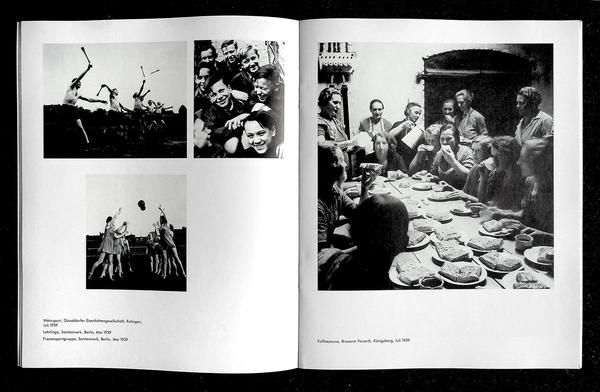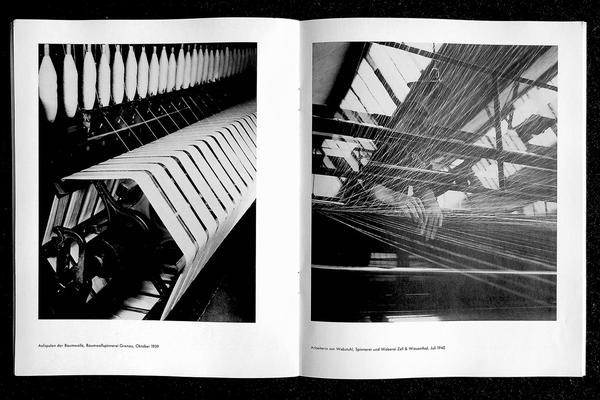Ruth Hallensleben
Industiephotographie
Hitzegrad Wuppertal, Germany, 1963
pages 48
first edition
dimensions 25.7 × 21 cm, softcover
language German

ARTISTS
IMAGES
Ruth Hallensleben
Between 1931 and 1934 she worked as an apprentice for the famous portrait and landscape photographer Elsbeth Gropp. In 1934, she opened her own studio. After training in portrait photography, she took up her predestined role as an industrial photographer. Her work is not only a poetic vision or a technical experiment but is also a testimony to the historical period she lived in, Germany during the 20th century. Very little room is left to individualism in the name of a more global vision. In 1945, fearing that the allied forces would confiscate all her photographic equipment and archives, she put all this material in three boxes which she buried in the forest of Wiehl. Three years later, two of the three boxes were found with their contents undamaged and she was able to resume her photographic activity.
Between 1931 and 1934 she worked as an apprentice for the famous portrait and landscape photographer Elsbeth Gropp. In 1934, she opened her own studio. After training in portrait photography, she took up her predestined role as an industrial photographer. Her work is not only a poetic vision or a technical experiment but is also a testimony to the historical period she lived in, Germany during the 20th century. Very little room is left to individualism in the name of a more global vision. In 1945, fearing that the allied forces would confiscate all her photographic equipment and archives, she put all this material in three boxes which she buried in the forest of Wiehl. Three years later, two of the three boxes were found with their contents undamaged and she was able to resume her photographic activity.






